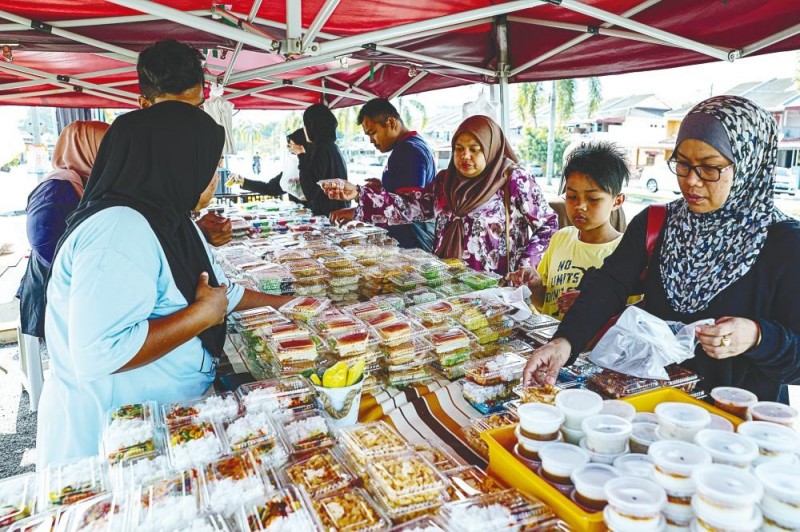
KUALA LUMPUR: While the nationwide ban on single-use plastic bags will only come into force in 2025, hawkers and roadside stall operators who want to adopt the policy now say they are confused about what environmentally sustainable packaging is and where to get them.
A 46-year-old lok lok (steamboat-style food served on skewers) seller in Petaling Jaya, who asked to be known only as Chen, said he does not know what “environmentally sustainable packaging” means.
“I have never seen them. I don’t know what exactly they are and even if I use them now, my customers might get angry if I charge more as it is going to be more expensive than the usual plastic bags I now use,” he said.
Satay seller Munirah Kassim, who has a stall in Puchong, said she appreciates the government’s efforts to create a more sustainable environment, but said she is unsure what is meant by the term.
“My customers usually buy satay in bulk and it is more convenient to use single-use plastic bags. I don’t know what packaging to change to. I hope the government and SME (small and medium-sized enterprises) can let us know what is acceptable and where to purchase the packaging,” she said, adding that she is keen to start using them.
Speaking on behalf of the Malaysian Association of Environmental Health, Universiti Putra Malaysia Faculty of Medicine and Health Sciences Assoc Prof Dr Sarva Mangala Praveena Appalanaidu said many small businesses rely on single-use plastic bags as a quick and cheap solution for their packaging needs.
While some hawkers are willing to embrace the change even before it affects them, they are bound to struggle with the increased costs associated with more sustainable packaging solutions.
“SME owners and street vendors who are accustomed to using plastic bags would need to make some changes to transition to more environmentally friendly alternatives,” she said.
To overcome the challenges that hawkers and roadside stall operators would face, Sarva Mangala suggested SME seek government assistance to design incentives that could facilitate the transition from single-use plastic bags.
“Eco-friendly practices are a must going forward, so incentives should be provided and may include grants, subsidies or tax incentives to help mitigate the cost of purchasing sustainable packaging materials,” she said.
In the meantime, the ban on single-use plastic bags at physical stores such as supermarkets, mini markets and sundry shops that was announced in May by Natural Resources, Environment and Climate Change Minister Nik Nazmi Nik Ahmad has been fully embraced by the outlets and the public.
Lotuss Stores (Malaysia) Sdn Bhd communications and sustainability head Hanim Hamdan said the hypermarket stopped providing single-use plastic bags at checkout counters since July 2021, before the announcement by the government.
“Our customers bring their own grocery bags when shopping even before the ban on single-use plastic bags came into force.
“We have been able to avoid approximately 26 million single-use plastic bags from being sent to landfills.
“We are currently reviewing the use of single-use plastic bags in other areas of our operations,” she said.
Hanim added that it is encouraging to see many of its customers were embracing the change and taking proactive steps to help the environment.
Sunway Malls and Theme Parks CEO H.C. Chan said the government ban on single-use plastic bags is to be supported.
“There should not be much of a negative impact as the government is implementing the ban in phases. We observe most of our customers carry their own shopping bags and have no qualms about purchasing a paper bag from us if necessary.
“We believe sustainability is everyone’s responsibility and the way forward for a more sustainable future.”
Source: https://www.thesundaily.my/local/hawkers-stall-operators-confused-over-environmentally-sustainable-packaging-OE11150916

